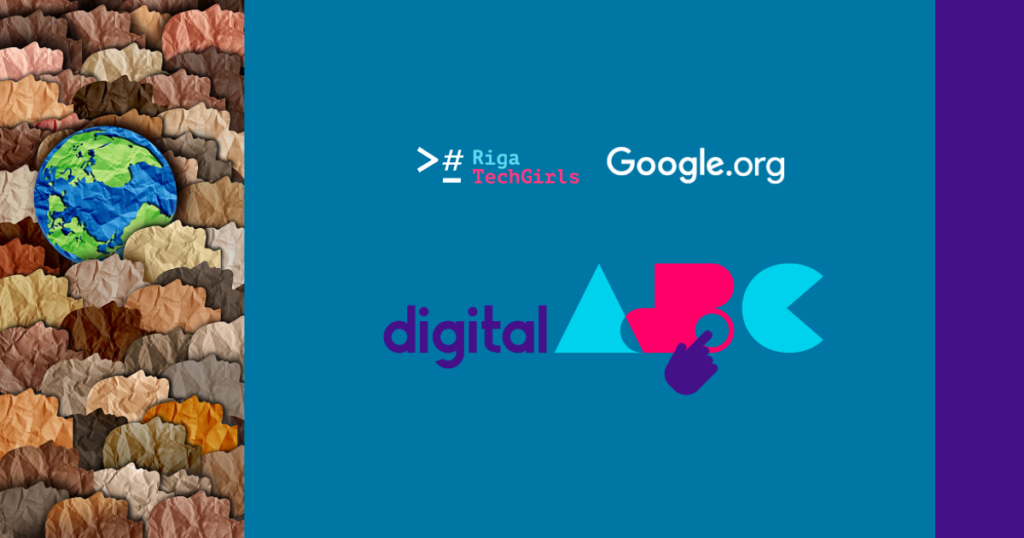Women in tech: expanding training to break barriers

• Women in tech are up against a 169-year equity-gap.
• To get more women in tech, men in tech need to shape up and be supportive.
• But there’s also an undeniable need for more training to equip more women with the skills they need to succeed in tech.
In Part 1 of this article, we spoke to Pauls Silins, from Riga Tech Girls, a Latvian training enterprise trying to help women into tech. In Part 2, we explored the importance of bringing men in tech along on the journey, to cut down the current time until gender equity is achieved in the tech industry – 169 years(!).
While we all hope for enlightenment and progress at every turn, the fact that a strong and seemingly implacable patriarchy exists within the industry suggests that bringing men along won’t be as easy as we hope. We asked Pauls about the potential for backlash.

A strong new approach to getting women into tech from Latvia.
THQ:
It’ll take 169 years for women to achieve equity in the tech industry if they’re fighting the engrained patriarchy of the industry on their own. That’s why, as you say, it’s vital to get men on board with the common and the economic sense inherent in the fight to get more and more women in tech.
But that assumes firstly that men get on board en masse, and that there’s no entrenchment, no backlash from those served pretty well by the ongoing patriarchal stranglehold on the industry.
READ NEXT

Women in tech: how men can help
You explained in Part 2 the way Riga Tech Girls is aiming to get more and more men in tech on board, through things like the “male champions program” and increasing visibility of both women in tech and supportive men in tech.
What about those who are entrenched in what it’s probably polite to call “traditional” attitudes? How do we short-circuit the kind of backlash we’ve seen in politics in the US in recent years?
Women in tech: defusing the backlash.
PS:
It’s important to say that we’re not expecting men who lead companies, or men in management roles, to simply get up and leave them to let women instantly assume those leadership roles. The whole point of getting more women in tech is that it’s not “anti-men,” it’s fair, it’s sensible and it will make everyone more money.
But where possible, we’ll encourage men in tech to be supportive of a shift to a more modern approach, where they can support the advancement of women in tech, to achieve equity much faster.
Where men are more entrenched, we’d encourage them to talk to other men in the industry who have been noticed as male champions, so they can learn the benefits of a pro-equity approach, to see what they can do better in their organizations, to learn about the steps they can take to make their organization more welcoming and more open for everyone.
And we’d encourage them to ask questions. Question themselves, question their actions. Are they really okay?
We’d all like to believe our heart is in the right place. But it’s important to question what you’re doing and what you’re saying, and to ask questions – be open to new information about how we conduct ourselves, in business (and in life, generally).
We need to be proactive, to try and make a tangible impact.

DigitalABC – new training for NGOs.
THQ:
What about men who are actively against the idea of gender equality?
PS:
That’s a bit more difficult, because it feels like they are a bit closed-minded. But we all have our own biases, we all are raised the way we are. And there’s a lot of things that it takes a lot of time to take out of us.

There are a whole range of ways to advance women in tech movements.
I don’t think there is one specific answer or way we can go about this. If we try to aggressively educate them, they close off, they walk away from the conversation. We need to talk with them, but it probably has to come from men. Because they’re probably not gonna listen to women who try to make the point.
This is definitely another thing that men in the tech field can and should do. They should have conversations, hopefully rational conversations, with the people who are close-minded, to present the fact once again that even if you are only in the industry for the profit, this can help your workforce. Hey, you’re lacking developers? Have you thought about hiring women? Or training them? Or giving them the opportunities at the end of the road? This is gonna help you out.
There’s not likely to be one silver bullet for the closed-minded people. That’s a very tough thing to tackle. But yeah, the men in tech who see why getting more women in tech is a great idea need to try to have calm and respectful conversations with the doubters, because when it gets to shouting, people stop listening and just start pushing their own agendas.
Women in tech: teaching NGOs?
THQ:
Let’s take something specific. Your new online training course is about upskilling the NGO workforce. Why is that important?
PS:
Well, we’re an NGO ourselves, so it makes sense for us to upskill similar organizations, in the first instance. But also, we’re tech-driven, and we work hand in hand with other NGOs, so we see that the issues they have in terms of getting more women in tech. This is something we understood specifically after running our programs with teachers, creatives and healthcare professionals. NGOs are another field where digital skills are lacking.
Only 56% of Europeans are in possession of basic digital skills. So with these programs, we try to raise the overall basic digital skills level. Of course, one program is not going to wave a magic wand and raise the skills for a whole lot of people. But if we can help the NGOs, which are the organizations that are actively helping parts of society that may not have the resources necessary to do it themselves, we can make the work of the NGOs more effective in delivering a lot of digital tools and skills.

DigitalABC training for NGOs.
Money is not always there on the table for NGOs. But what you have is your enthusiasm and your time. And if we can help out, then more good can be done throughout the whole of Europe. That’s also why for instance, we wanted this particular training to go outside of Latvia.

Pauls Stilins, of Riga Tech Girls.
THQ:
And why you’re running it in English? To make a bigger, broader impact?
PS:
Of course, yeah. In this case, it’s available to anyone in Europe. By making it accessible to as many people as possible, the goal is to make a bigger difference, and to disseminate the digital skills further and wider than we’ve been able to do in Latvia, focusing only on Latvian-speakers.
We’re running our DigitalABC training from September until early December, and covering a range of topics like project management, data modelling, delving deep into data, because that’s an important topic, and other technologies that are available nowadays.
What we’re hoping to do is empower people, and empower women particularly, to take on the challenges of the tech world. To try and boost women in tech movements both at home and outside the Latvian borders, and to do whatever we can to help reduce that 169-year equity gap between men and women in tech.









